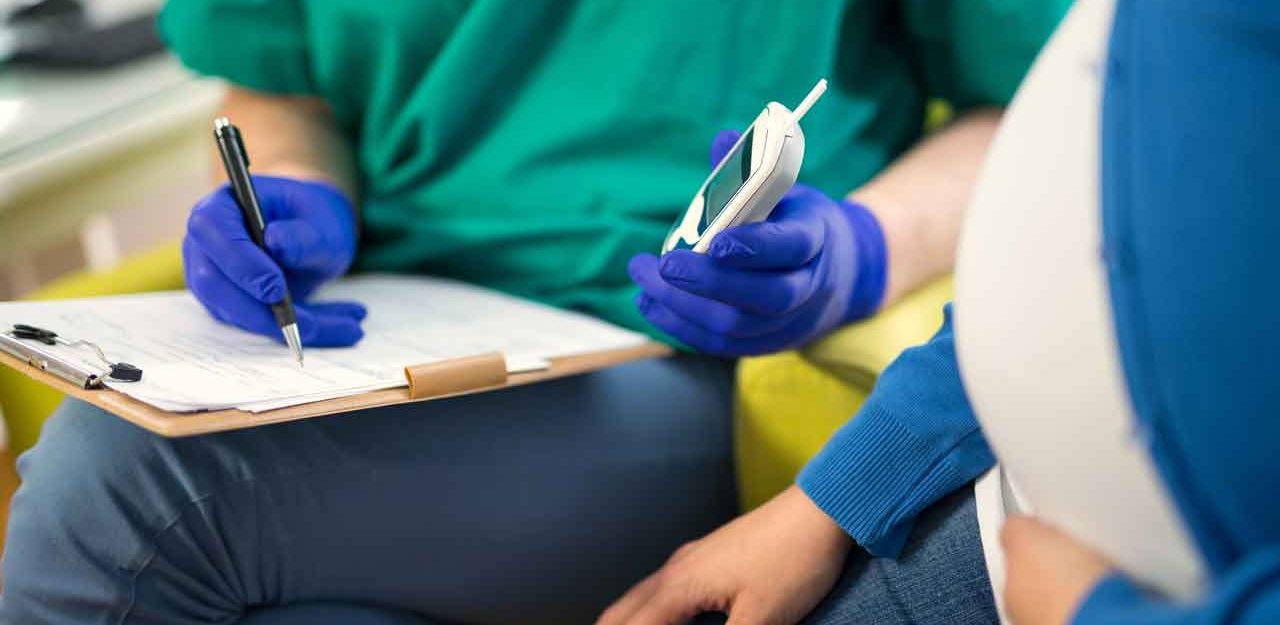Gestational Diabetes Can Have Later Consequences

Gestational diabetes develops during pregnancy and usually disappears after you give birth — but later health consequences to mom and child can be serious.
If you’ve never been diagnosed with diabetes, you may assume diabetes is nothing to worry about when you become pregnant. But one form of the condition, gestational diabetes, develops only when women are expecting. The health consequences can impact the health of both you and your baby — possibly, for years to come.
If you are planning on getting pregnant, it’s important to understand the causes of gestational diabetes because there you can steps take to lower your risk. As with type 1 and type 2 diabetes, gestational diabetes is marked by abnormally high blood glucose (also called blood sugar). It develops during pregnancy when your body doesn’t make enough insulin, a hormone your pancreas produces, or your cells do not absorb glucose effectively (insulin resistance).
YOU MIGHT ALSO LIKE: How to Get Your Pre-baby Body Back
High levels of other hormones impair the action of insulin somewhat when you are pregnant, so it’s normal to have a modest increase in blood sugar after meals when you are expecting. For about eight percent of pregnant women, however, blood sugar levels spike too high, causing gestational diabetes, usually during late pregnancy.
Doctors screen pregnant women for gestational diabetes with blood tests to measure glucose levels. It’s the only way to know for sure you’ve developed the condition; there are often no obvious symptoms of gestational diabetes, or only mild ones, although some pregnant women may be excessively thirsty and fatigued. Blurred vision and excessive urination can also be symptoms of gestational diabetes, according to the National Institute for Diabetes and Digestive and Kidney Diseases.
You can’t change some risk factors for gestational diabetes, including having:
- Close relatives with type 2 diabetes
- Gestational diabetes during a previous pregnancy
- Polycystic ovary syndrome (a condition marked by a hormone imbalance).
You can address the main risk factors — being overweight and gaining too much during your pregnancy.
If you have a healthy weight before you are expecting, you may not only avoid gestational diabetes but also lower your risk for later consequences of gestational diabetes.
Long-term consequences of gestational diabetes can include:
- Preeclampsia
- Problems with your pregnancy and childbirth
- Cesarean section
- High blood pressure
- Heart disease
About 50 percent of women with gestational diabetes will develop type 2 diabetes.
Your baby could also be born with high blood sugar and high bilirubin (jaundice).
If you are diagnosed with gestational diabetes, don’t panic. Most of the time, gestational diabetes can be controlled and treated during your pregnancy. It’s crucial, however, to follow your doctor’s instructions about weight gain, diet, and treatment carefully to avoid later consequences.
YOU MIGHT ALSO LIKE: Mom's Weight after Giving Birth Tied to Overweight Kids
Updated:
January 19, 2024
Reviewed By:
Janet O’Dell, RN